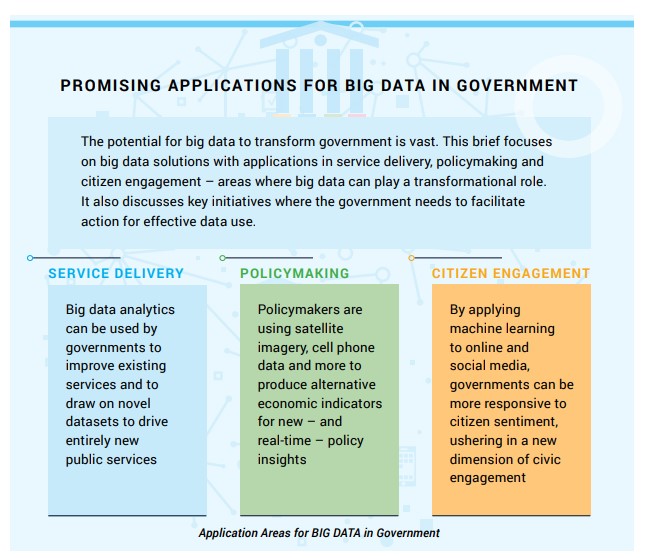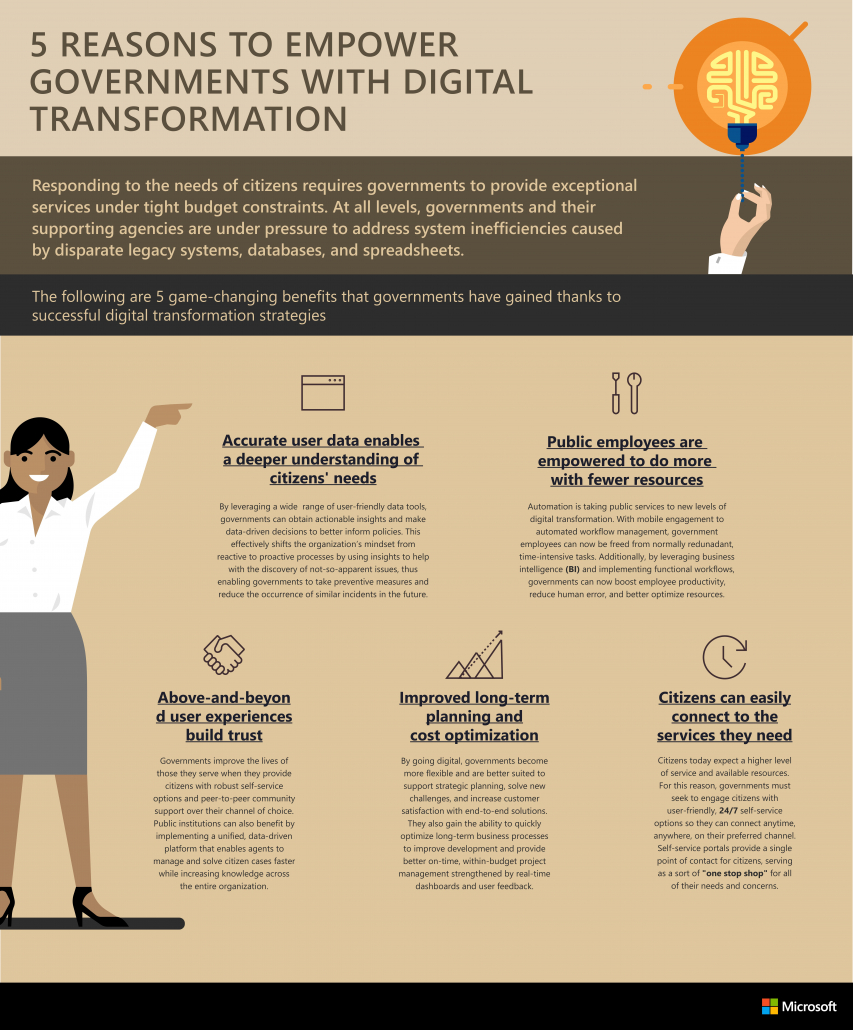5 Reasons to Empower Governments with Digital Transformation in Malaysia
Responding to the needs of citizens requires governments to provide exceptional services under tight budget constraints. At all levels, governments and their supporting agencies are under pressure to address system inefficiencies caused by disparate legacy systems, databases, and spreadsheets.
However, to keep manage growing demands for digital services, the Government should see digital technology as a way of improving services and saving money to do more with less.
Needless to say, digital transformation in Malaysia is becoming ever more important and vital for governments to run essential sectors of the country due to COVID-19 as old and outdated systems can not keep up with the growing demand for digital services from governments, citizens, and organizations.
Digital transformation empowers every industry including government and it has great potential to modernize government and public services and to make them more flexible.
In recent years, there have been marked improvements in citizens’ experience of new digital public services. However, overall progress towards transforming the way government operates and towards using data to understand organizational performance through better application of digital technology has been slow.
The following are 5 game-changing benefits that governments have gained thanks to successful digital transformation strategies
1. Accurate user data enables a deeper understanding of citizens’ needs
By leveraging a wide range of user-friendly data tools, governments can obtain actionable insights and make data-driven decisions to better inform policies.
Big data is a term widely used to describe the exponential growth of data, and government bodies have an opportunity to harness big data solutions to improve product performance and innovation in service delivery and policy making processes.
The UK’s Digital Government Unit estimates the country’s government can save around US$20-41 billion annually through big data analytics.
This effectively shifts the organization’s mindset from reactive to proactive processes by using insights to help with the discovery of not-so-apparent issues, thus enabling governments to take preventive measures and reduce the occurrence of similar incidents in the future.

And governments in the United Kingdom, the United States, Singapore, and Korea are among many that have adopted high-level big data strategies.
2. Public employees are empowered to do more with fewer resources
Automation is taking public services to new levels of digital transformation. With mobile engagement to automated workflow management, government employees can now be freed from normally redundant and time-intensive tasks.
Digital transformation of governments with ERP platforms includes in-built reporting tools with real-time data updates as work progresses. This allows public sector employees to create more strategies focus on important and high-value tasks.
However, the benefits of public employees being empowered do not only include those in the office, but also modern ERP tools empower employees off-site and on-site with capabilities to fit individual and department needs to complete tasks in the quickest, easiest, and most cost-effective way possible.
As such, public sector employees can automate and simplify their tasks to do more with fewer resources.
Additionally, by leveraging business intelligence (BI) and implementing functional workflows, governments can now boost employee productivity, reduce human error, and better optimize resources.
3. Above-and-beyond user experiences build trust
Governments improve the lives of those they serve when they provide citizens with robust self-service options and peer-to-peer community support over their channel of choice.
And although Government in Malaysia has been rapidly moving towards digitalization, many of their digital and self-service platforms rely on decades-old systems that do not provide the features to fully digitalize the process and create good user experiences.
With growing privacy-policy laws, citizens want to oversee their own personal data and how it has been used by the Governments.
So, to provide a good user experience and to follow policy, legislative and security requirements governments must establish digital transformation based on user experiences and building their trust.
Modern digital platforms enable to connect government and its citizens in a more efficient and effective way to enhance communication and meet user and technical requirements for stability, availability, and resilience. Digital platforms can support consistently high-quality experiences, no matter which device or channel users choose to access them.
Public institutions can also benefit by implementing a unified, data-driven platform that enables agents to manage and solve citizen cases faster while increasing knowledge across the entire organization.
4. Improved long-term planning and cost optimization
By going digital, governments become more flexible and are better suited to support strategic planning, solve new challenges, and increase customer satisfaction with end-to-end solutions.
Digital technologies work as a strategic driver to create open, participatory, and trustworthy public sectors, to improve social inclusiveness and government accountability, and to bring together government and non-government actors and develop innovative approaches to contribute to national development and long-term sustainable growth.
Implementing digital government strategies relating to engaging citizens and open government to maintain public trust; improving governance for better collaboration and results; and strengthening capabilities to achieve returns on investments in digital technologies.
Digitization will therefore play a key role to leverage this transformation of the public sector at large, given its potential to increase productivity and inclusiveness of service production and delivery in public welfare areas.
Also, the government gains the ability to quickly optimize long-term business processes to improve development and provide better on-time, within-budget project management strengthened by real-time dashboards and user feedback.
5. Citizens can easily connect to the services they need
Citizens today expect a higher level of service and available resources. For this reason, governments must seek to engage citizens with user-friendly, 24/7 self-service options so they can connect anytime, anywhere, on their preferred channel.
Self-service portals provide a single point of contact for citizens, serving as a sort of “one-stop-shop” for all of their needs and concerns.
This underpins a digital platform to support service transformation and drive channel shift to customer self-service via any device. Enable customers ‘My Account’, provide knowledgebase searching, and enable community collaboration with forums. Take online payments for chargeable services and products.
This brings benefits to Governments to manage the ever-growing demands of citizens and enable channel shift for customer transactions to reduce costs and citizens can maintain control of their own details and preferences to improve data quality and targeting.
And with Forums/Knowledgebase search enables self-resolution reducing call volumes to contact centers and increase overall satisfaction.
Learn more about Digital Transformation in Government for Malaysia
Government agencies are at a crossroads. Governments today often rely on a patchwork of systems to address their complex needs, which span citizen services, community outreach, field service, project management, and financial oversight.
Agile Dynamics Solutions is the leading Microsoft partner helping businesses and Governments to digitally transform their operations for the last 30 years. We have experience across numerous industries and understand the government requirements.
If you want to learn more about the possible Digital transformation of Government in Malaysia, contact us and we will provide you more information on how Microsoft supports governments to digitally transform, with secure and reliable cloud technologies and applications that fit your and citizen’s requirements.
Microsoft enhancing government’s productivity across the world and Agile Dynamics Solutions as the leading partner in Malaysia can help you to learn more about Digital transformation in Government in Malaysia.
Contact us for more information
Infographic
Download the infographic in PDF version here.




